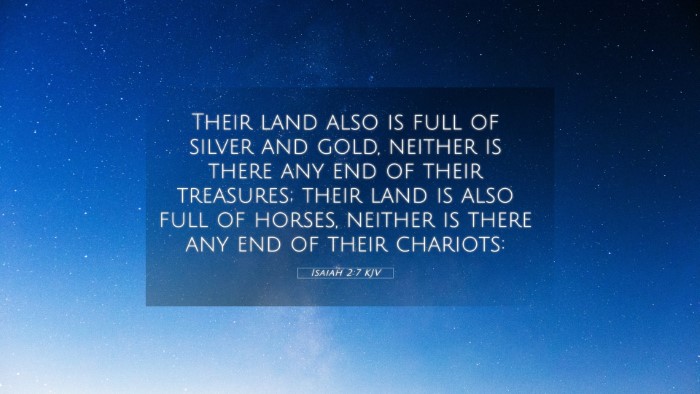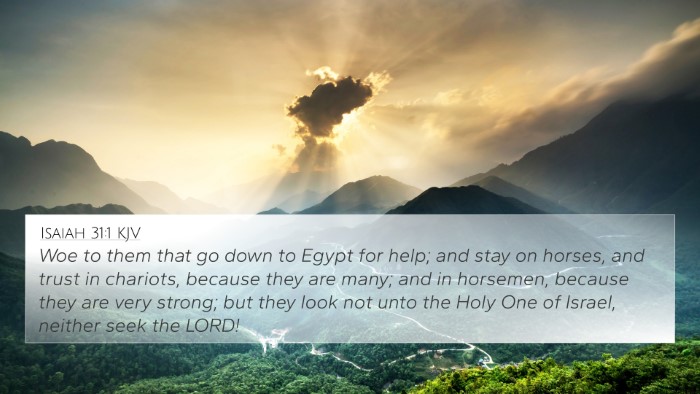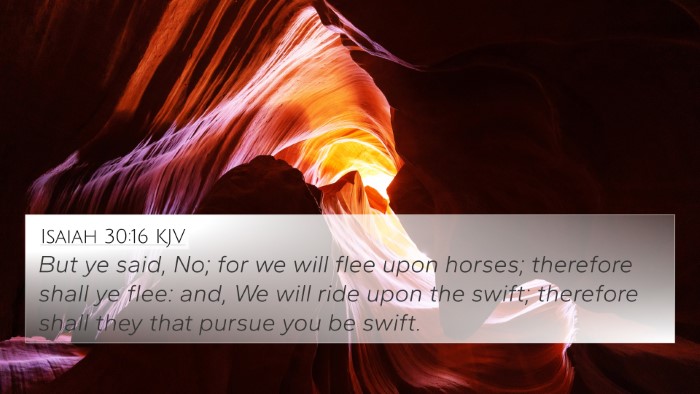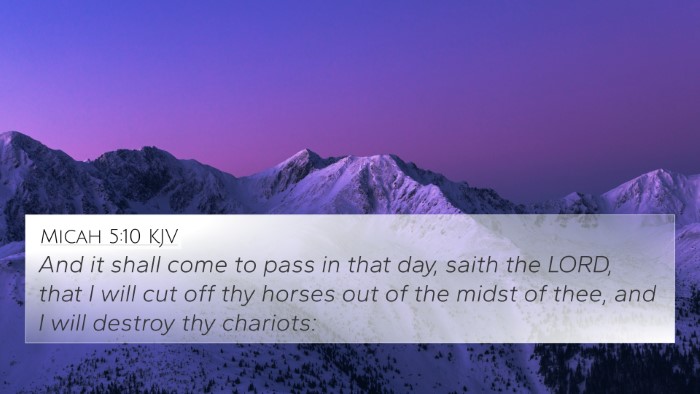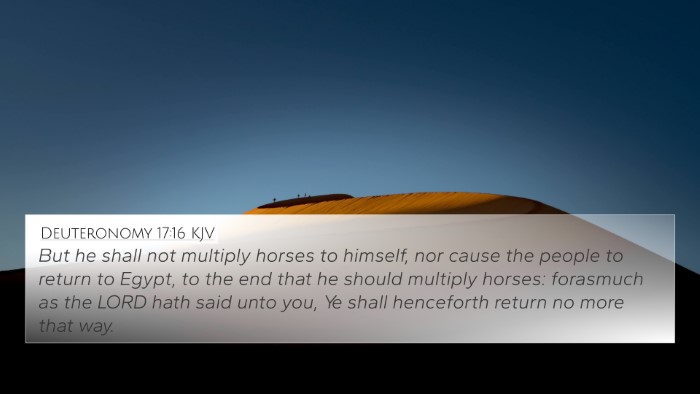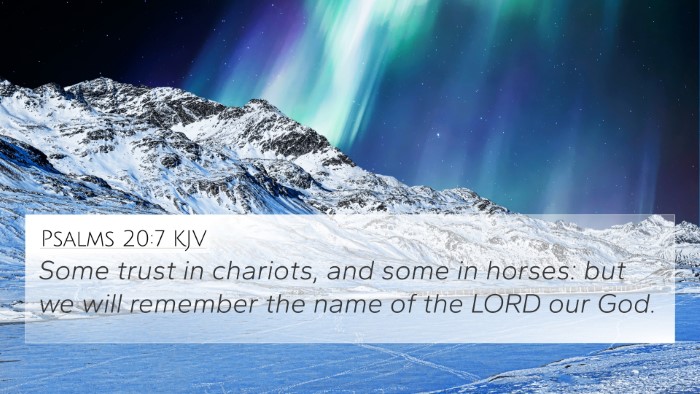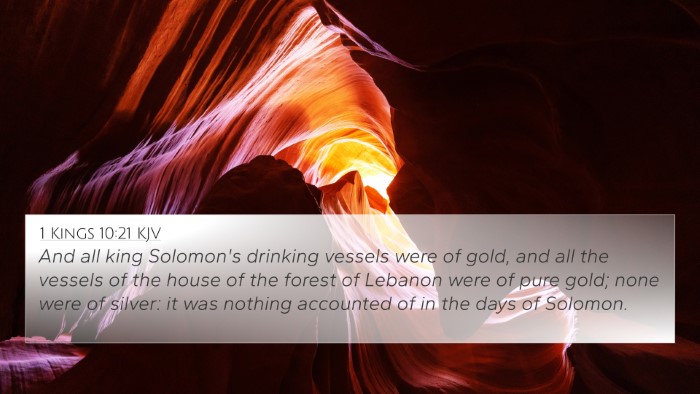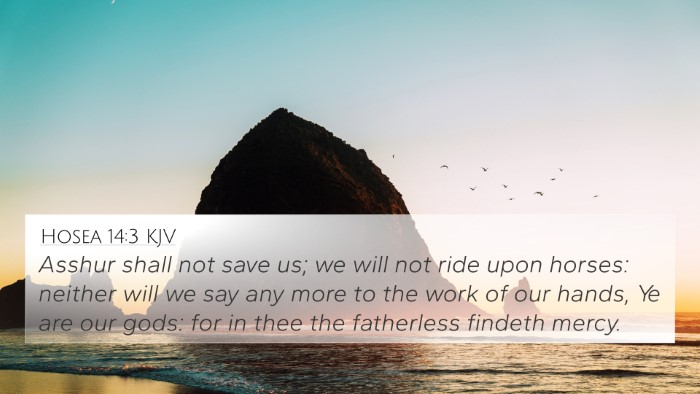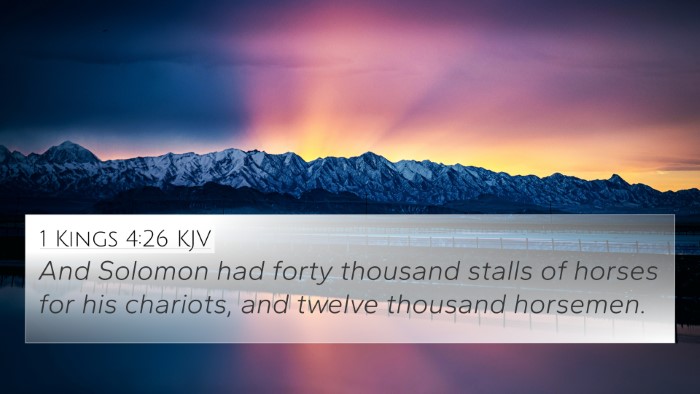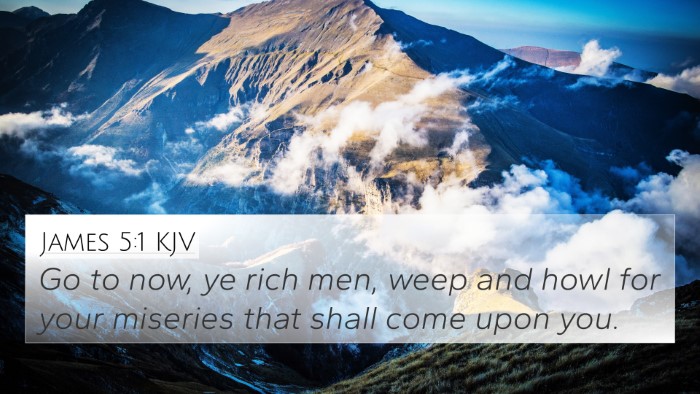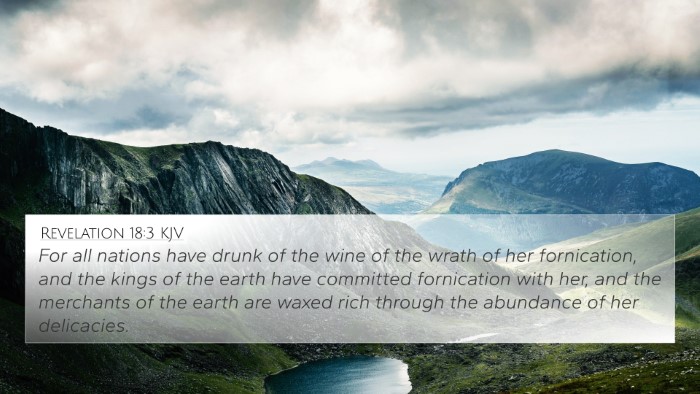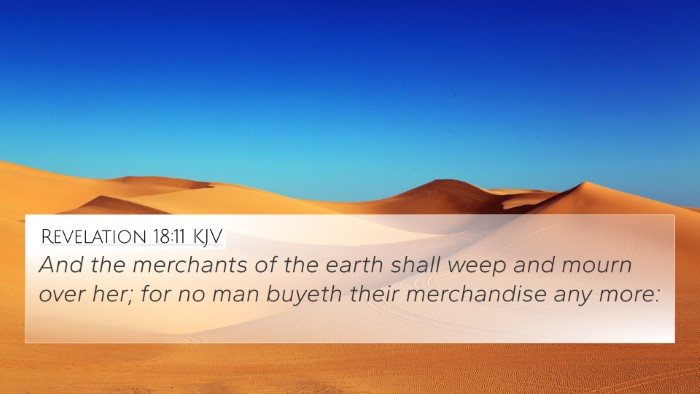Understanding Isaiah 2:7
Isaiah 2:7 states:
"Their land also is full of idols; they worship the work of their own hands, that which their own fingers have made."
This verse sheds light on the spiritual condition of the people during the time of the prophet Isaiah. The focus here is on idolatry and the tendency of humanity to create deities from their own hands, highlighting a prevalent theme in the Bible regarding the futility of worshiping created objects rather than the Creator.
Key Themes and Meanings
- Idolatry: Isaiah critiques the practice of idolatry, where people replace true worship of God with the veneration of idols. This reflects a broader biblical theme that runs throughout both the Old and New Testaments.
- Human Craftsmanship vs. Divine Creation: The verse emphasizes the contrast between what humans create and what God has created, serving as a reminder of the limitations of human hands.
- Spiritual Blindness: The passage indicates a spiritual blindness, where the people fail to recognize the folly of their actions and their reliance on idols.
Commentary Insights
Combining insights from notable public domain commentaries, we find several critical interpretations of Isaiah 2:7:
Matthew Henry: Matthew Henry elaborates that this verse is indicative of the moral and spiritual decay within the land of Judah. He notes that the “land full of idols” signals a rejection of God's sovereignty and a turn toward self-made religion.
Albert Barnes: Barnes discusses the implications of worshiping what one has made with their hands, emphasizing that such practices lead to a misplaced trust and reliance, which inhibit authentic relationship with God.
Adam Clarke: Clarke offers a comprehensive critique of idolatry in ancient cultures and draws connections to similar issues in contemporary contexts, using Isaiah 2:7 as a poignant example of the human condition.
Bible Verse Cross-References
Isaiah 2:7 is interconnected with several other Bible verses which reinforce its themes. Here are some related scripture references:
- Exodus 20:3-5: The Ten Commandments specifically advise against the making of images and the worship of other gods.
- Psalm 115:4-8: This psalm critiques idols, stating that they are created by human hands and cannot do anything.
- Isaiah 44:9-20: A passage discussing the absurdity of idol-making and a warning against such practices.
- Jeremiah 10:3-5: Details the futility of idol worship and compares idols to a scarecrow.
- Acts 17:29: Paul states that we are God's offspring, and implies that we shouldn't think of the divine as an image made by human hands.
- 1 John 5:21: A warning to keep oneself from idols, reinforcing the message of Isaiah regarding spiritual purity.
- Habakkuk 2:18-19: The folly of trusting in idols is also addressed, critiqued for their inability to speak or act.
Thematic Bible Verse Connections
The theme of idolatry explored in Isaiah 2:7 is prevalent across the scriptures. Here are some thematic connections:
- Worship of God must not be mixed with idol worship.
- Humanity's tendency to rely on that which is created rather than the Creator.
- Call to repentance from idolatry across the prophetic books.
The Role of Cross-Referencing in Bible Study
Understanding verses like Isaiah 2:7 benefits significantly from cross-referencing. Here are some tools and methods for engaging in cross-referencing Bible study:
- Utilize a Bible concordance to find related terms and themes.
- Engage in Bible chain references to connect themes across scripture.
- Leverage a Bible cross-reference guide for comprehensive study resources.
- Apply cross-referencing Bible study methods to see how Old Testament prophecies link with New Testament fulfillments.
Conclusion
Isaiah 2:7 serves as a powerful reminder of the dangers of idolatry and the importance of worshiping the true God. By utilizing resources for Bible verse cross-references and understanding the connections between scriptures, believers can deepen their understanding of God's Word and apply its lessons to their lives.

